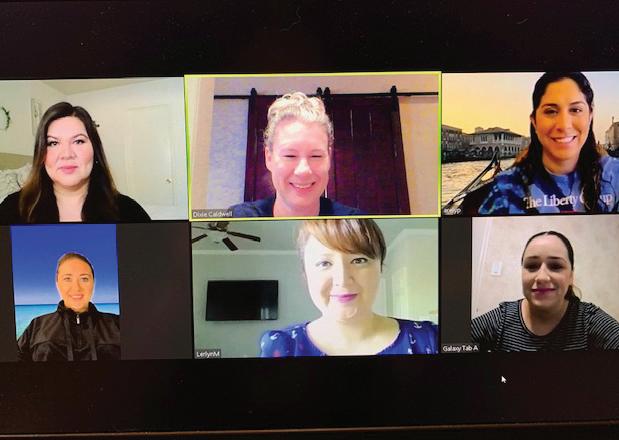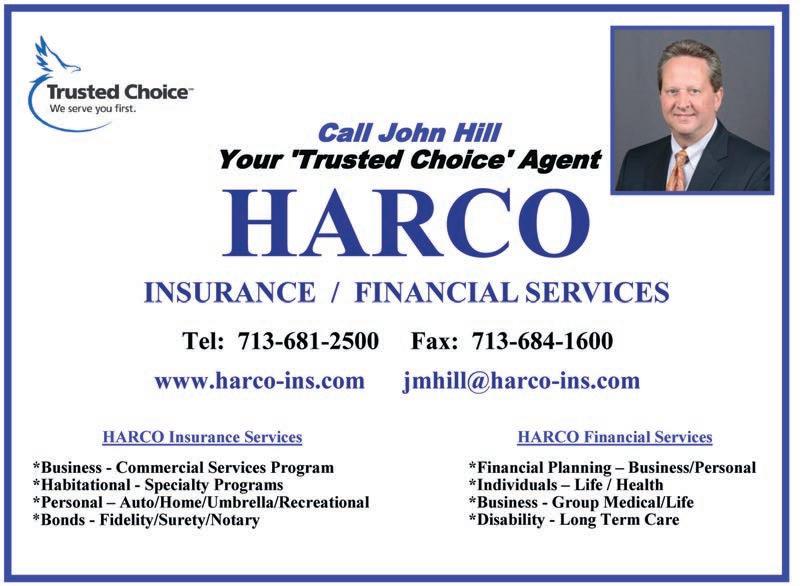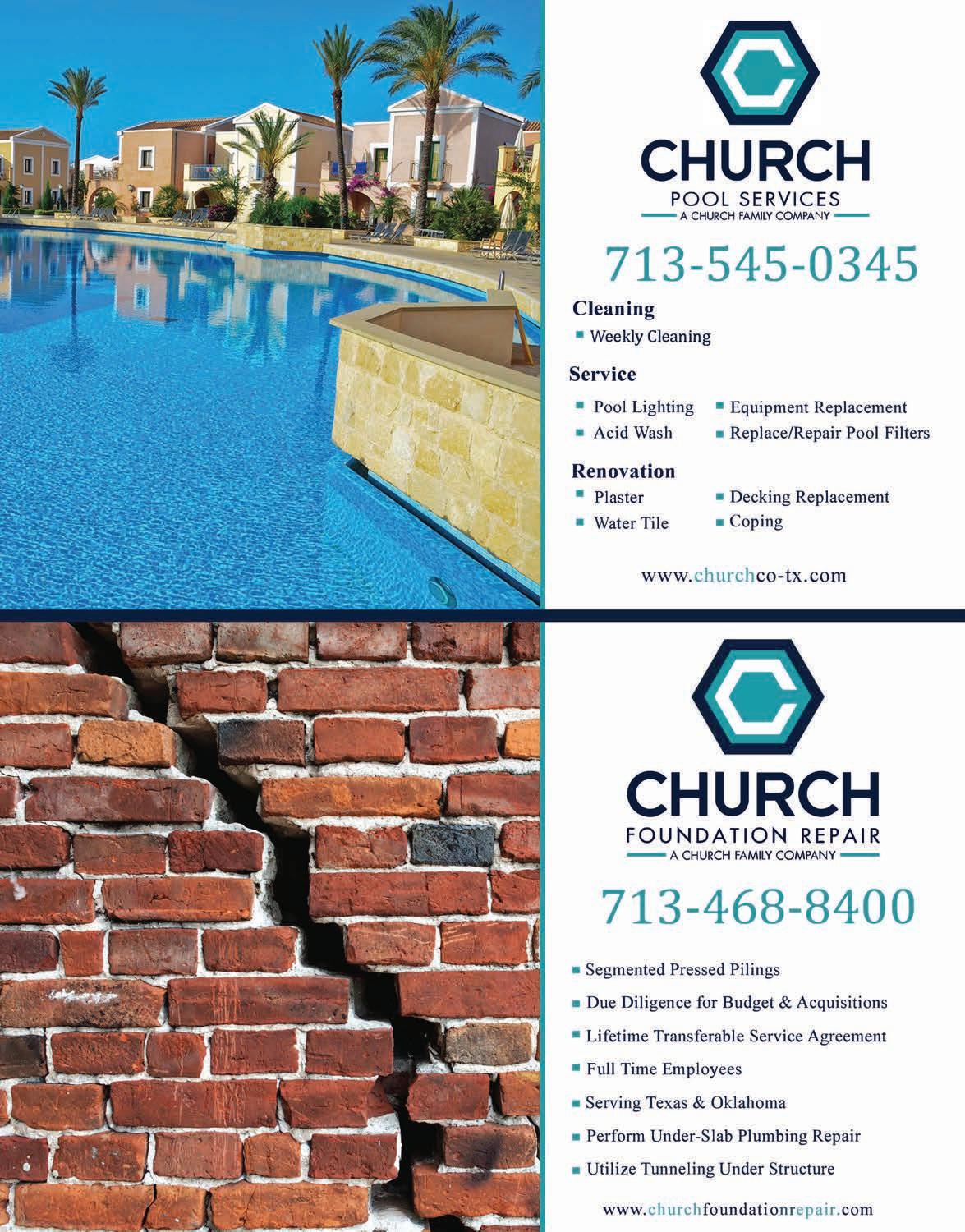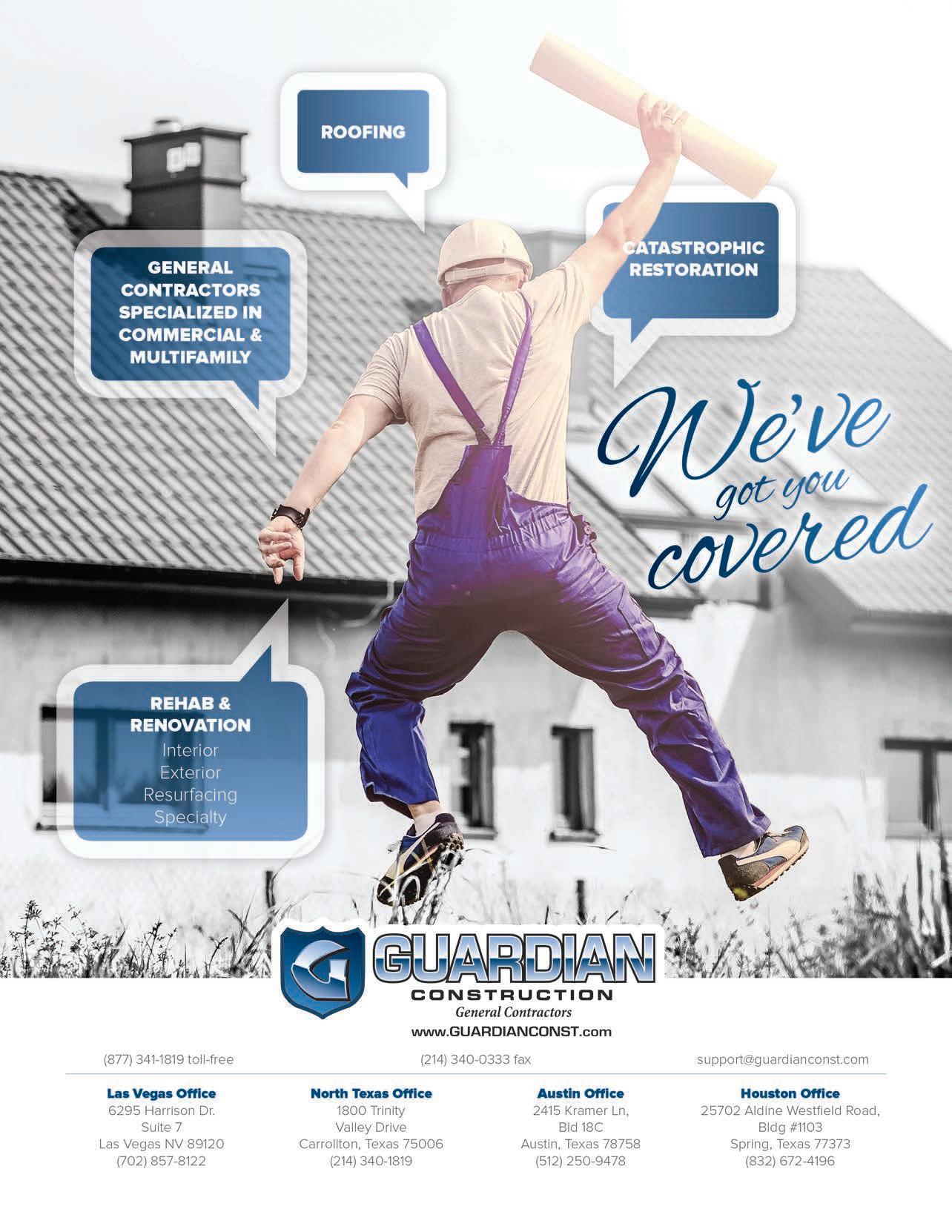bio one pg 46,47.qxp_Layout 1 4/17/20 2:05 PM Page 2
Learn how to protect yourself, your team and your residents from COVID-19. By
MICHAEL FULWEBER, GEORGE MORRISON and THOMAS POLCYN, Bio-One
A note from the editor: This article was written on March 30. It was edited on April 1. The public health and safety guidelines to protect apartment communities, residents and employees still apply, but the overall COVID-19 situation in Houston may have changed.
I
t’s vital to follow Centers for Disease Control and Prevention (CDC), United States Environmental Protection Agency (EPA) and Occupational Safety and Health Administration (OSHA) guidelines during this pandemic. The CDC has a dedicated webpage for COVID-19, which can be found at https://www.cdc.gov/coronavirus/2019-ncov/. The Texas Department of Health and Human Services has a COVID-19 page as well, www.dshs.texas.gov/coronavirus/. These pages have a lot of up-to-date information on the status of the coronavirus outbreak, as well as preventative measures and steps to take if you become infected. Having a deep experience in property disinfection for a range of bacterium infections, (such as the abbreviated MRSA and C. diff), HIV, hepatitis and now coronavirus, this article contains advice to help during these difficult times:
Protecting Your Leasing Office You likely already have protocols in place to fight this disease. Some communities have closed leasing offices, but others have remained open with a limitation on the number of people admitted at one time. In addition to the personal practices that help prevent spread of the virus, like hand washing for at least 20 seconds, coughing or sneezing into the crook of your elbow, avoiding touching your face (easier said than done), making sure you’re constantly wiping down touch points and hard surfaces with an approved CDC/EPA chemical that is registered to kill the coronavirus. The CDC recommends the use of EPA-registered household disinfectants, a link to those disinfectants can be found here: https://www.epa.gov/pesticide-registration/list-n-disinfectants-use-against-sars-cov-2), many of which are bleach, ammonia or at least 60% alcohol based. Recently in the news, because some people tried to make hand sanitizer from it, Tito’s Vodka is being used by people to make hand sanitizer, but with it being only 40% alcohol, Tito’s is not effective against the coronavirus. As a safety note: never mix bleach with ammonia or any other cleanser, as toxic gasses can be released. Spray down your work area every 15 to 20 minutes. Immediately spray any area where there is an interaction between people. Maintain social distances at the six-foot rule and minimize gatherings. Coronavirus is primarily transmitted through droplets from airborne discharge, so remember to cough and sneeze into the crook of your elbow. If you suspect you have contracted the virus, please wear a mask to prevent spreading it to others, and better yet, stay at home. It’s vital to ensure common areas are sanitized and frequently www.haaonline.org
cleaned. Although residents have the right to refuse to disclose such information, it’s also important to encourage residents to inform management if they are infected, as a courtesy to management and your neighbors. We recommend that you consult your legal counsel for more information. Resident Infection at your Community Here is some general guidance from the National Apartment Association on resident infection: If a resident tests positive for the coronavirus and notifies the property owner or manager, the owner or manager should follow the CDC’s guidance and work with health officials. It is the responsibility of the health care provider, not the patient to report cases of disease to health departments and the CDC. A notice to the community may go out in the event a resident or employee with a confirmed case and should be a business decision made with appropriate local counsel. Extreme caution is advised if choosing to make a disclosure because of privacy laws, and the person’s identity to include name or unit number should not be disclosed. If a resident or employee is known to have contracted COVID-19, there are steps you can take to prevent its spread to adjoining units and common areas. First, though, we believe it is essential to treat the infected resident with care and respect. Because spread is possible before a person shows symptoms, people who have become infected haven’t necessarily done anything wrong, although they may feel distressed and vulnerable, especially when quarantined. This could be a great opportunity to let your residents know that you support them and their health. With a known infection onsite, we recommend that you call a professional biohazard remediation service immediately to sanitize and clean the common areas and the unit(s) that might be vulnerable to spread. A team will come in and fog these areas with a CDC/EPA approved, hospital grade disinfectant and wipe down all surfaces with a sprayed liquid disinfectant to thoroughly decontaminate. Allowing a professional to clean and sanitize your community, as opposed to treating your community yourself, will guarantee a healthy and safe community, as professional cleaning companies are trained find the more exotic touchpoints that may not be plainly obvious. Another difference is expert use of fogging to decontaminate porous materials, such as upholstered furniture, drapes and carpets. Once disinfection is completed by a professional, its critical to set the protocols previously mentioned in place, so that these previously treated areas are not re-contaminated. Inform all residents of the proper protocols. Also, encourage any residents who are ill to remain in their units. Either refer to NAA or your legal counsel on how to manage this. We all want to act legally and ethically during this difficult time. / See Protect, Page 53
May 2020
ABODE
47








